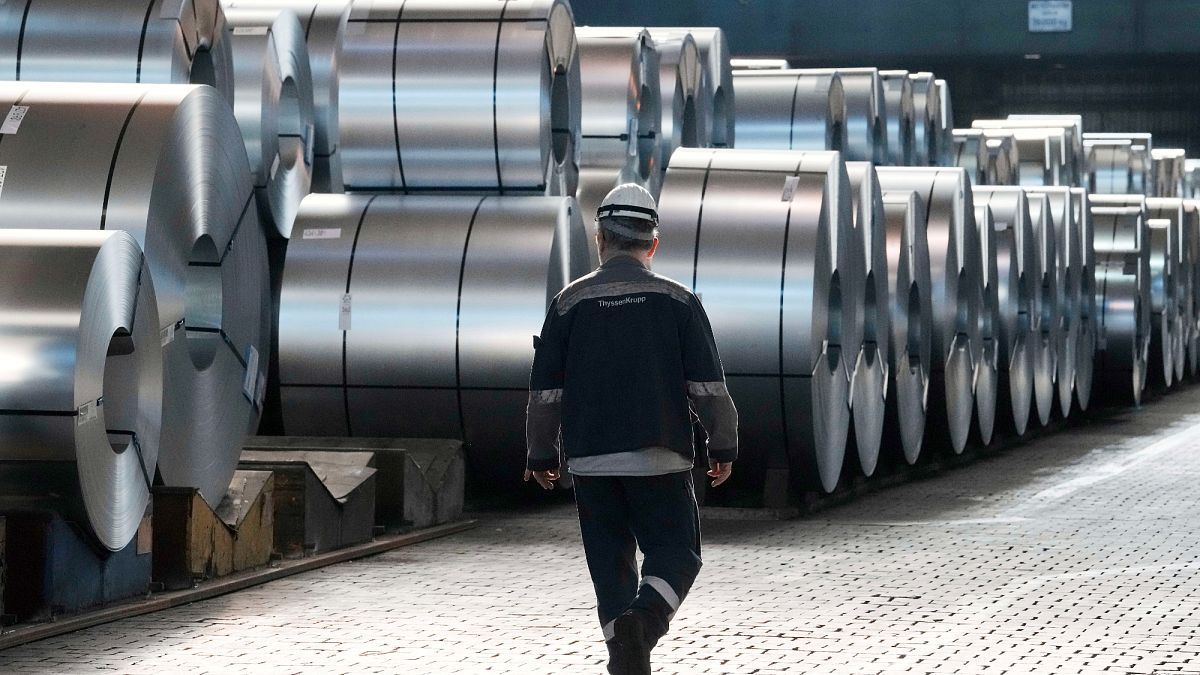Published on
MEPs voted this week to exempt more than 90% of small-and-medium enterprises (SMEs) from the EU’s carbon border adjustment mechanism (CBAM) — a tax imposed on imports — amid European Parliament plans to simplify existing sustainability laws.
The CBAM is an import duty based on the estimated carbon footprint of certain goods like steel and cement, which has been in force in a transitional phase since October 2023. As of 2026, importers will be liable to report on the carbon footprint of their goods, and where applicable pay duty.
With the simplification, small business will be excused from reporting the carbon emissions produced by imported goods into the EU like steel, cement, aluminium, fertilizers, electricity or hydrogen.
A legislative review to cut red tape in the CBAM was unveiled by the EU executive in February, under the “Omnibus Package”, to support small EU importers and prevent companies from moving production to countries with laxer climate policies, so-called carbon leakage.
MEPs voted overwhelmingly – 617 for/18 against – on a trilogue agreement, an official deal between the Commission and the EU co-legislators, for an exemption on importers bringing in under 50 tonnes a year of CBAM goods, a measure that benefits around 90% of importers — 182,000 businesses — mainly SMEs.
“We have answered calls from companies to simplify and streamline the process and exempted 90% of importers of CBAM goods to facilitate competitiveness and growth for our businesses,” said Italian MEP Antonio Decario (S&D), leading the file in the Parliament.
Green Austrian lawmaker Lena Schilling praised the vote as a reference for how cutting red tape doesn’t necessarily mean stepping back from climate protection.
“The majority of companies benefit from less bureaucracy, while almost all emissions are still being tracked. This should serve as a model for the EU Commission’s upcoming waves of deregulation,” Schilling told Euronews.
Upcoming review
Following today’s vote by lawmakers in plenary, the simplification law is pending approval by EU countries, a mere formality. However, the EU executive is preparing additional reviews to the EU tax at the border by the end of the yar, an action causing speculation on whether the EU will end up caving in to pressure from the US to water down key parts of the CBAM, as the laws was criticised by Energy Secretary Chris Wright for carrying “huge legal risks” for US companies.
“This law has passed with a majority because it didn’t change its scope, only the economic operators affected. The upcoming CBAM review may be more contested since it will change the law’s scope,” a parliamentary source told Euronews.
A Commission spokesperson told Euronews that by the end of 2025, the EU executive will release a proposal to “extend CBAM scope to downstream products and address circumvention”.
“The Commission needs to give clarity soon, and industry should keep preparing. That’s not easy, but CBAM’s success will rely on calm work and steady progress, not panic,” David Cruz, Climate Change & Sustainability at the Oslo-based consultancy CEMAsys told Euronews.
Read the full article here


